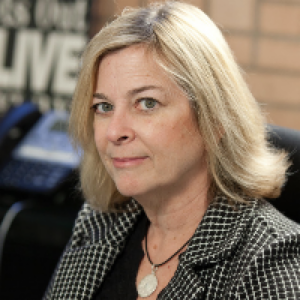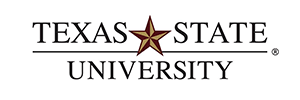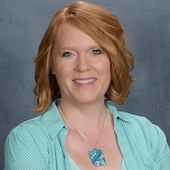USC Online MA in Gerontology (MAG) and Master of Arts in Aging Services Management (MAASM) Programs
“Gerontologists fill an important gap across biological, social, psychological, healthcare, and policy areas in our society as they work to address the diverse needs of the growing population of older adults.”
Susan Enguidanos, PhD, Associate Professor, Leonard Davis School of Gerontology, University of Southern California
The University of Southern California USC Leonard Davis School of Gerontology offers an online master of arts in gerontology (MAG) and a master of arts in aging services management (MAASM) program. With the growing aging population, healthcare professionals need to have the skills and knowledge to address their unique gerontological needs. The MA in gerontology is designed to help students understand the aging process and how better to serve older people. The MAASM, by comparison, is designed to equip current and future managers in the aging services field to respond to the growing aging population.
Applicants to the master of arts in gerontology (MAG) program are ideally professionals in the aging care field who were previously trained in other areas such as public health, physical therapy, occupational therapy, social work, business, medicine, or law. Students in this program can learn to better understand the aging process and those they serve and distinguish themselves from their peers through their knowledge and skills concerning the aging.
Applicants to the master of arts in aging service management (MAASM) program learn skills to address the rapidly changing healthcare environment, meet the growing financial and care demands of the aging population with creative new approaches, and stay current on cutting-edge technology for aging care. Agencies that employ professionals with a MAASM degree include retirement communities, assisted living facilities, residential care facilities, home care and delivery services, and hospice care programs. New service areas being developed include lifelong creative therapy programs and home modification programs.
Notably, the USC Leonard David School of Gerontology has partnered with the Bank of America to create the Bank of America Merrill Lynch Longevity Training Program. This program is designed to drive current awareness and understanding of the needs of the aging population and their families by focusing on the latest in medical advances, research, and the psychological, physiological, and sociological aspects of aging, including how they impact the workforce as a whole. Overall, the program focuses on seven life priorities: work, home, family, health, leisure, giving, and finances.
The University of Southern California campuses are located in the heart of Los Angeles: the University Park Campus and the Health Sciences Campus.
For the latest academic year, we have 170 schools in our MHAOnline.com database and those that advertise with us are labeled “sponsor”. When you click on a sponsoring school or program, or fill out a form to request information from a sponsoring school, we may earn a commission. View our advertising disclosure for more details.
Meet the Expert: Susan Enguidanos, PhD, MPH

Dr. Susan Enguidanos is an associate professor at the Leonard Davis School of Gerontology at the University of Southern California. She has conducted extensive research on home-based palliative care programs that found costs of care for those in their last year of life can be reduced by 33 percent while improving patient satisfaction with care.
Dr. Enguidanos has also conducted numerous studies investigating ethnic variation in access to and quality of care as well as examining patient and caregiver attitudes and beliefs toward palliative and hospice care. She teaches courses such as “End-of-Life Care” and “Social and Psychological Aspects of Death and Dying.” She also teaches a travel abroad course in Italy, examining ancient civilizations’ death and dying practices.
MHAOnline.com: What is something you wish the public understood about gerontologists?
Dr. Enguidanos: Gerontologists fill an important gap across biological, social, psychological, healthcare, and policy areas in our society as they work to address the diverse needs of the growing population of older adults. Educational programs uniquely prepare gerontologists to work in these fields to improve the quality of life for older adults.
MHAOnline.com: What advice would you give to aspiring gerontology students?
Dr. Enguidanos: Identify your passion and seek an education program that will help you attain your future goals. Be open-minded about exploring different opportunities offered by gerontology programs and faculty members. Seek opportunities to volunteer in the community, work in a faculty labs, or work on a research project in the gerontological field.
What to Expect from the USC Online MAG and MAASM Programs
Admission Requirements: Applicants must have a minimum GPA of 3.0. No work experience is required, but it is preferred. A GMAT/GRE score is no longer required for students who have a 3.0 or greater GPA. Otherwise, it is required. Additionally, candidates must submit an application, a current resume, a statement of interest, two letters of recommendation, and official transcripts. The statement of interest is an important consideration in the application and should tell USC why a student is applying, covering the candidate’s previous experiences in gerontology, strengths and weaknesses, and educational and career goals. Also, students whose native language is not English must submit an acceptable score on the TOEFL (80 internet-based or 570 paper-based) or IELTS tests (6.5).
Study Plan: Courses are offered in 15-week semesters. Students can expect to spend 15-20 hours studying each week. Students can graduate in 18 months or more. Start dates are offered in spring, summer, and fall.
Coursework: The MA in gerontology consists of 20 core credits and eight elective credits for a total of 28 credits. Core courses include perspectives on a changing society: an introduction to aging; life span developmental psychology; the mind and body connection through the lifespan; life span developmental sociology; and social policy and aging. Electives include counseling older adults and their families; administration and system management in programs for older adults; case studies in leadership and change management; the aging family; and micronutrients, health, and longevity.
The MAASM consists of 12 core credits and 20 elective credits for a total of 32 credits. Core courses are perspectives on a changing society; applied legal and regulatory issues in aging; marketing and shifts in consumer decision making; current issues in aging services management; technological innovations in aging; and case studies in leadership and change management. Electives include courses such as the aging family; physiology of development and aging; social policy and aging; life span developmental psychology; and end of life care.
Online Experience: Courses are fully online and are asynchronous meaning students can watch lectures at any time within a given period. However, each week there is a scheduled real-time discussion using Adobe Connect. This allows students to interact with faculty and classmates. The same professors teach the online courses that teach on-campus courses. USC online programs use Blackboard and offer 24/7 technical support for students encountering problems. Students residing in certain states are not eligible to complete the listed programs online via distance learning at this time.
On-Site Requirements: The MAG and MAASM are available in their entirety to distance learning students online and also to those who are able to attend classes on campus. Distance students are not required to attend classes on campus. Students are welcome to visit campus and are encouraged to participate in graduation on campus.
Paying for the USC Online MAG and MAASM Programs
USC online MAG and MAASM tuition numbers are listed in the tables below, and do not include additional fees. Prospective online students should contact the admissions department of the specific program for cost clarifications and updates. For any general questions about the program, please reach out to [email protected], visit gero.usc.edu, or call 213-740-5156.
The USC Leonard Davis School of Gerontology offers financial aid in the form of merit-based scholarships, federal aid, and loans. They offer federal and private programs to assist in paying for a master’s degree. Applicants are also encouraged to seek outside resources for help paying for their MAG or MAASM degree. Some companies may offer education support programs for employees seeking an advanced degree.
University of Southern California (USC) Master of Arts in Gerontology (MAG)
| Degree Level | Master's Degree |
| Program Start Dates | Fall, Spring, Summer |
| Credits Needed to Graduate | 28 |
| Time to Complete? | Graduate in as little as 18 months |
| 100% Online? | Yes |
| Program Accreditation | Developing a process with the Association for Gerontology in Higher Education (AGHE), about 1 year out |
| Level of Education Required? | Bachelor's degree or higher |
| GRE or GMAT Required? | Yes (GRE required if GPA under 3.0) |
| Work Experience Required? | No, but experience preferred |
| Credit Hours | 28 |
| Average Cost Per Credit | $2,354.00 |
| Estimated Program Tuition * | $65,912.00 |
University of Southern California (USC) Master of Arts in Aging Services Management (MAASM)
| Degree Level | Master's Degree |
| Program Start Dates | Fall, Spring, Summer |
| Credits Needed to Graduate | 32 |
| Time to Complete? | Graduate in as little as 18 months |
| 100% Online? | Yes |
| Program Accreditation | Developing a process with the Association for Gerontology in Higher Education (AGHE), about 1 year out |
| Level of Education Required? | Bachelor's degree or higher |
| GRE or GMAT Required? | Yes (GRE required if GPA under 3.0) |
| Work Experience Required? | No, but experience preferred |
| Credit Hours | 32 |
| Average Cost Per Credit | $2,354.00 |
| Estimated Program Tuition * | $75,328.00 |
Tuition is calculated based on credits, at the published tuition rate. For programs with variable tuition rates, we use the rates for part-time students. Tuition number represents the cost of tuition for the entire program, not per semester or year. Estimated total tuition does not include additional fees, unless otherwise specified. Please check here for any tuition updates.





